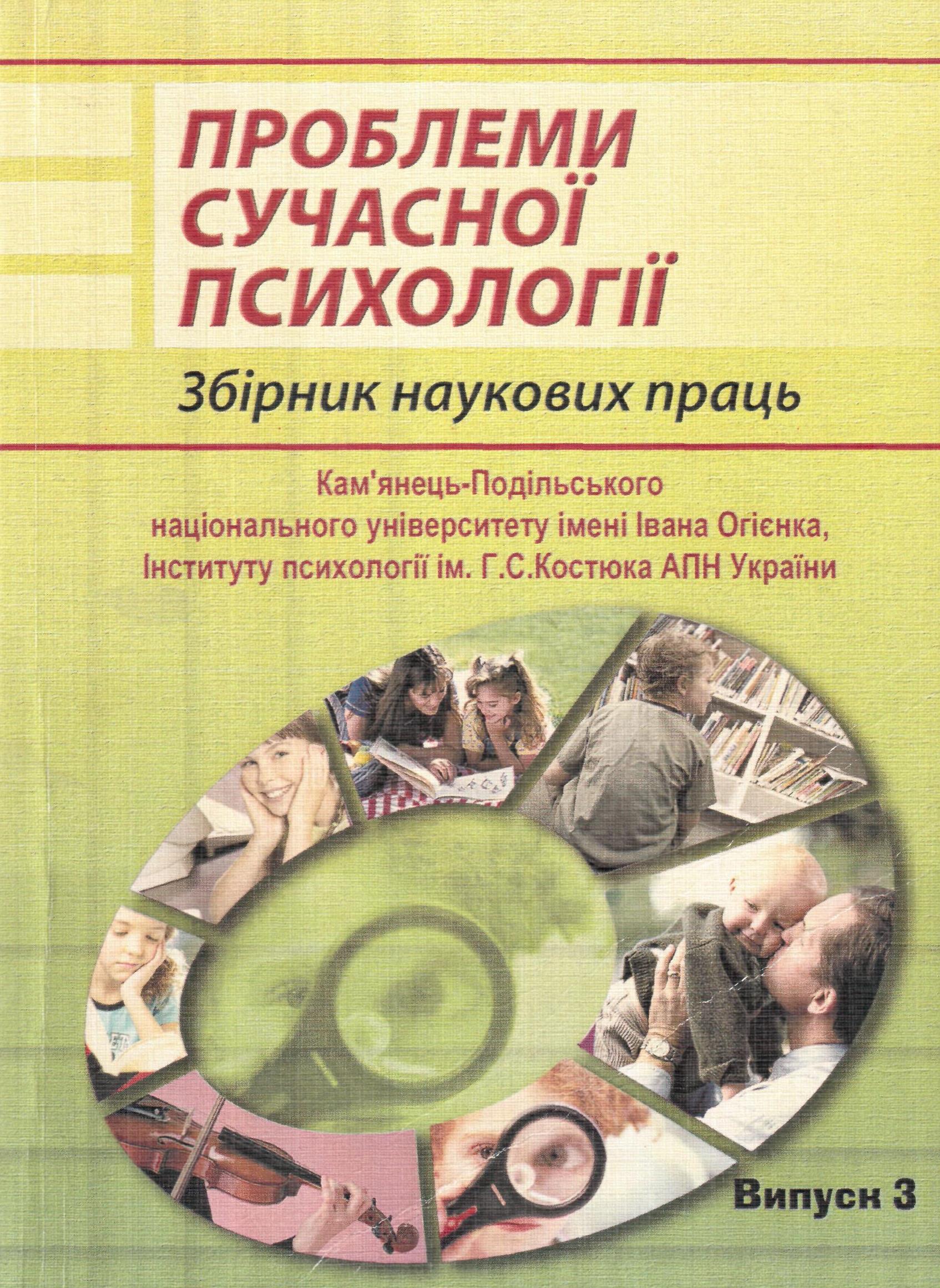Дослідження ідентичності старшокласників в контексті сімейної системи
DOI:
https://doi.org/10.32626/2227-6246.2009-3.%25pKeywords:
ідентичність, тип сімейної системи, смисло-життєві орієнтації, самоставлення, локус контролю.Abstract
Статтю присвячено з’ясуванню зв’язку між розвитком
ідентичності особистості старшокласників та характеристиками
сімейної системи. Експериментально виявлено, що для сімей
респондентів характерні послаблення емоційних контактів,
тенденція до неадаптивних реакцій, що виявляються у хаотичному
типі взаємин, втраті керованості змінами. Виявлені відмінності щодо
статусу ідентичності, особливостей локусу контролю, самоставлення
та смисло життєвих орієнтацій респондентов з різних типів сімей.
References
Попова М.В. Становление персональной идентичности
в юношеском возрасте: Автореф. дисс… канд. психол.
наук.
Grotevant H.D., Thornbecke W.& Meyer M.L. An
Extention of Marcia’s Identity Status Interview into the
Interpersonal Domain // J. of Youth and Adolescence. –
– Vol.11. – № 2. – P. 33 47.
Орестова В.Р., Карабанова О.А. Методы исследования
идентичности в концепции статусов эго идентичности
Дж. Марсиа // Психология и школа. – № 1. – 2005. –
С. 39 90.
Черников А.В. Системная семейная терапия: Интегра
тивная модель диагностики. – Изд. 3 е, испр. и доп. –
М.: Незав. фирма “Класс”, 2005. – 208 с.
Downloads
How to Cite
Issue
Section
License
Copyright
The Editorial Board has the full right to publish original scientific papers containing results of theoretical and experimental research works which are not currently subject to review for publication in other scientific editions. The Author shall transfer to the editorial board of the Collection the right to spread the electronic version of the paper, as well as the electronic version of the paper translated into English (for papers originally submitted in Ukrainian and Russian) by all kinds of electronic means (placement at the official website of the Collection, electronic databases, repositories etc).
The Author of an article reserves the right to use materials of the paper, without approval with the editorial board and the founders of this Collection: a) partially or fully, for educational purposes; b) for writing own dissertation papers; c) for preparation of abstracts, conference reports and presentations.
The Author of an article can place electronic copies of the paper (including the final electronic version downloaded from the official website of the Collection) at:
- personal web resources of all Authors (websites, webpages, blogs etc.);
- web resources of the institutions where the Authors are employed (including electronic institutional repositories);
- non-profit public access web resources (for example, arXiv.org).
But in all cases, it is obligatory to have a bibliographic reference to the paper, or a hyperlink to its electronic copy placed at the official website of this Collection.






